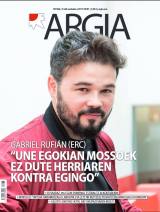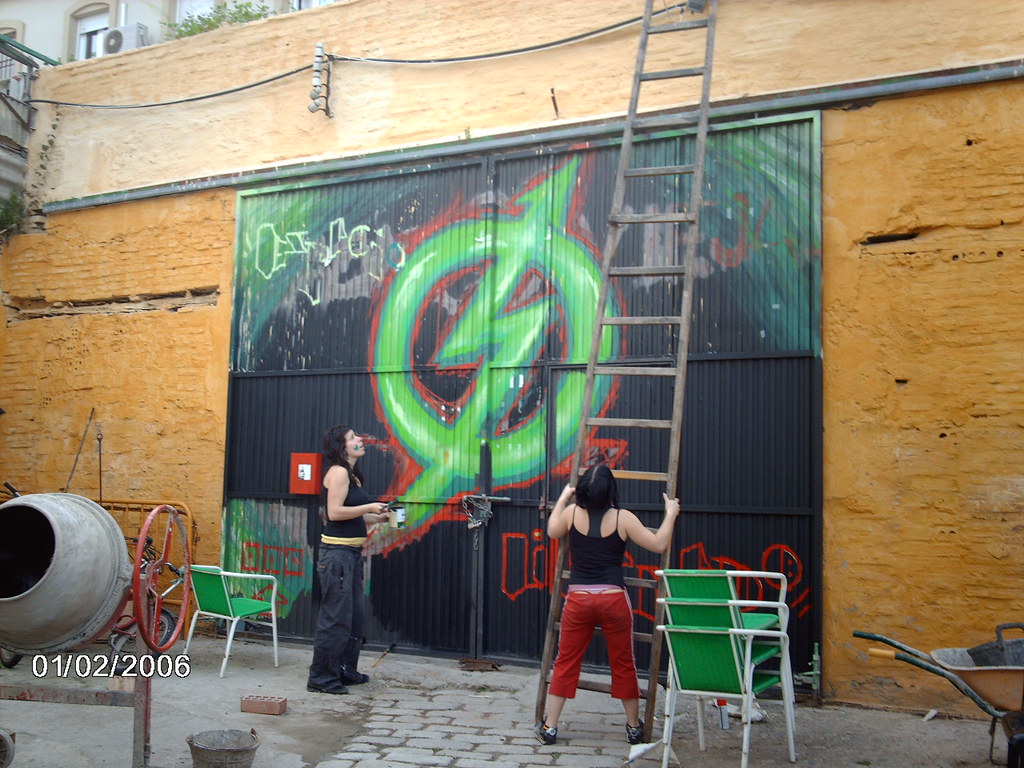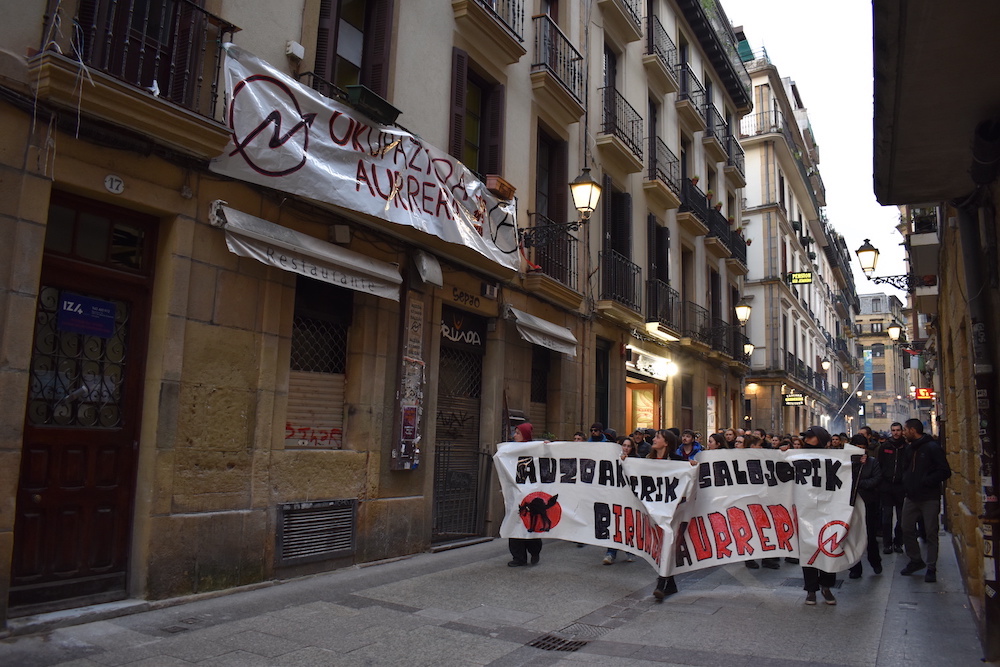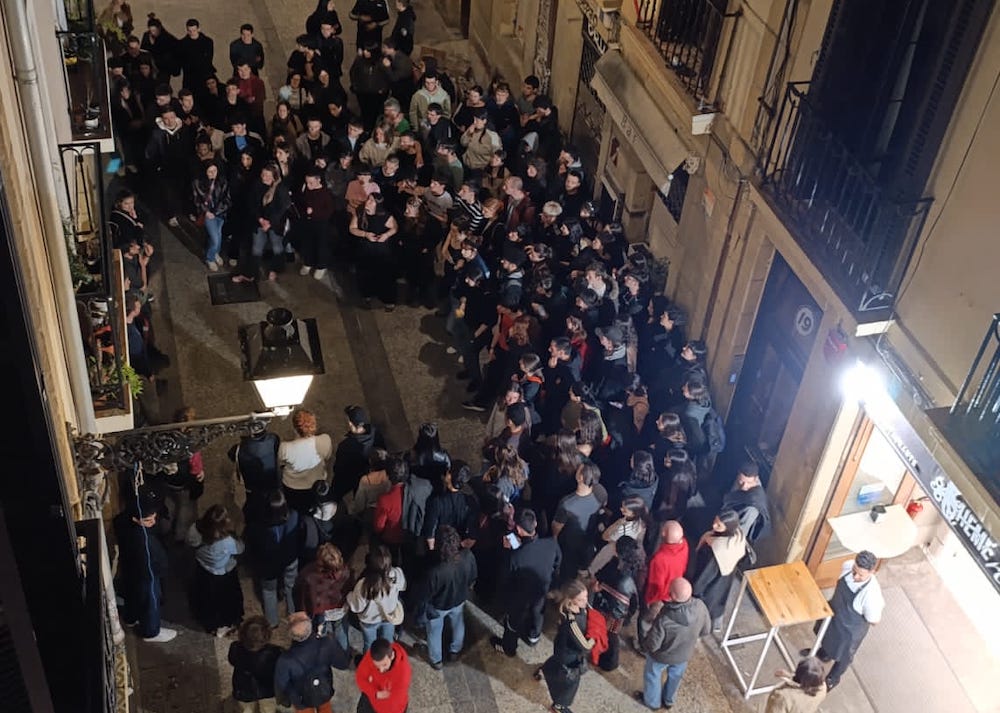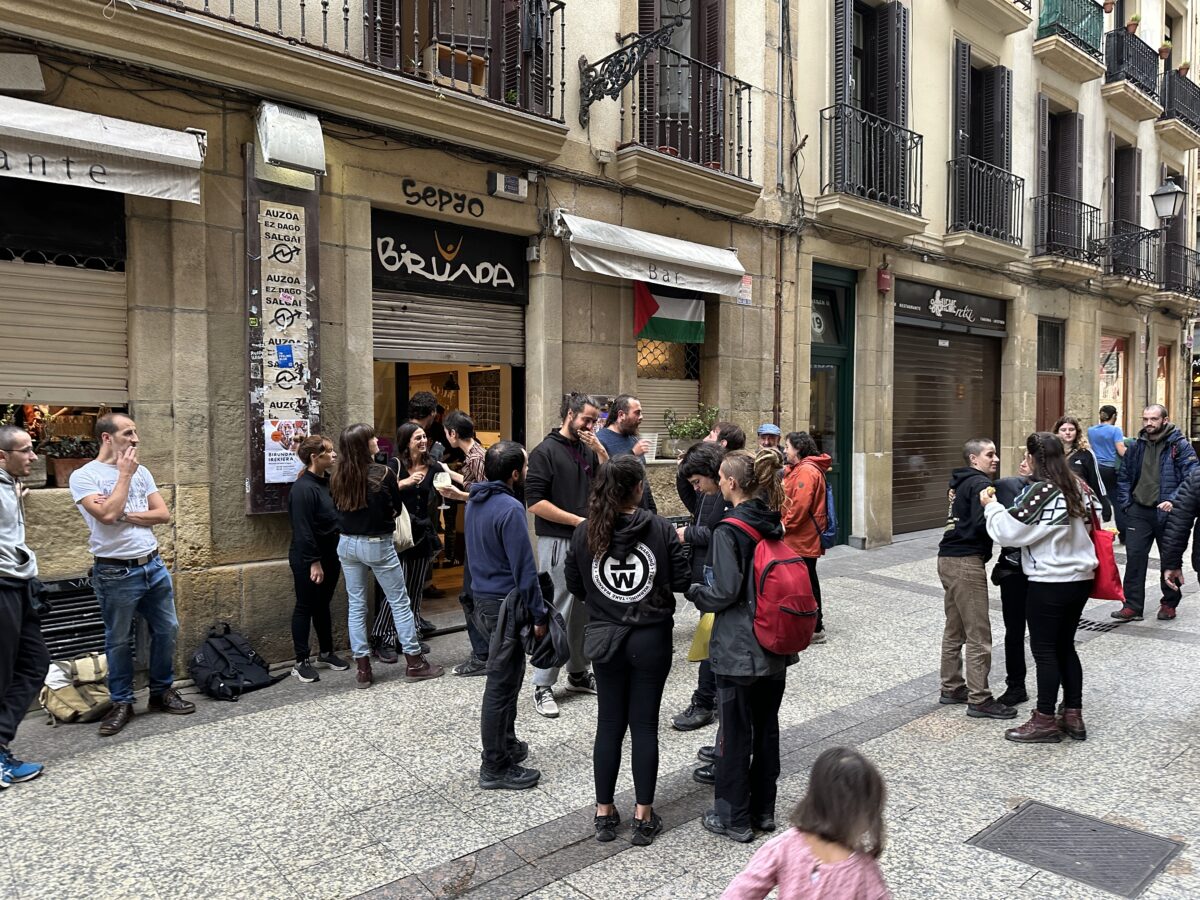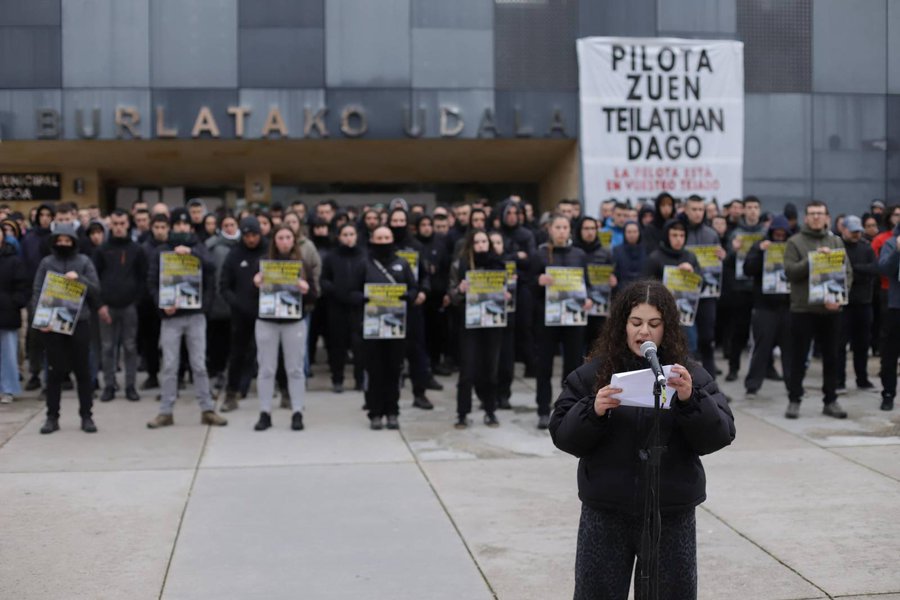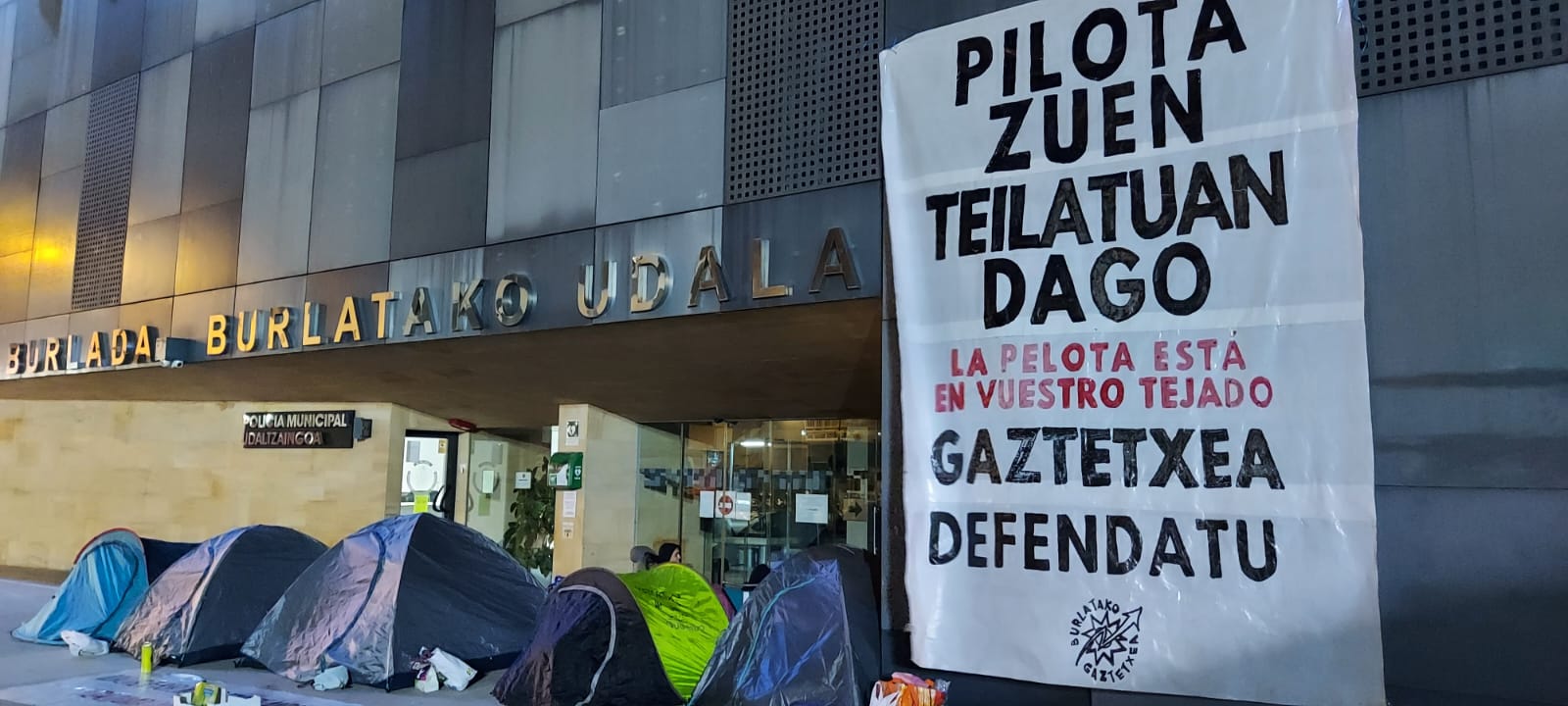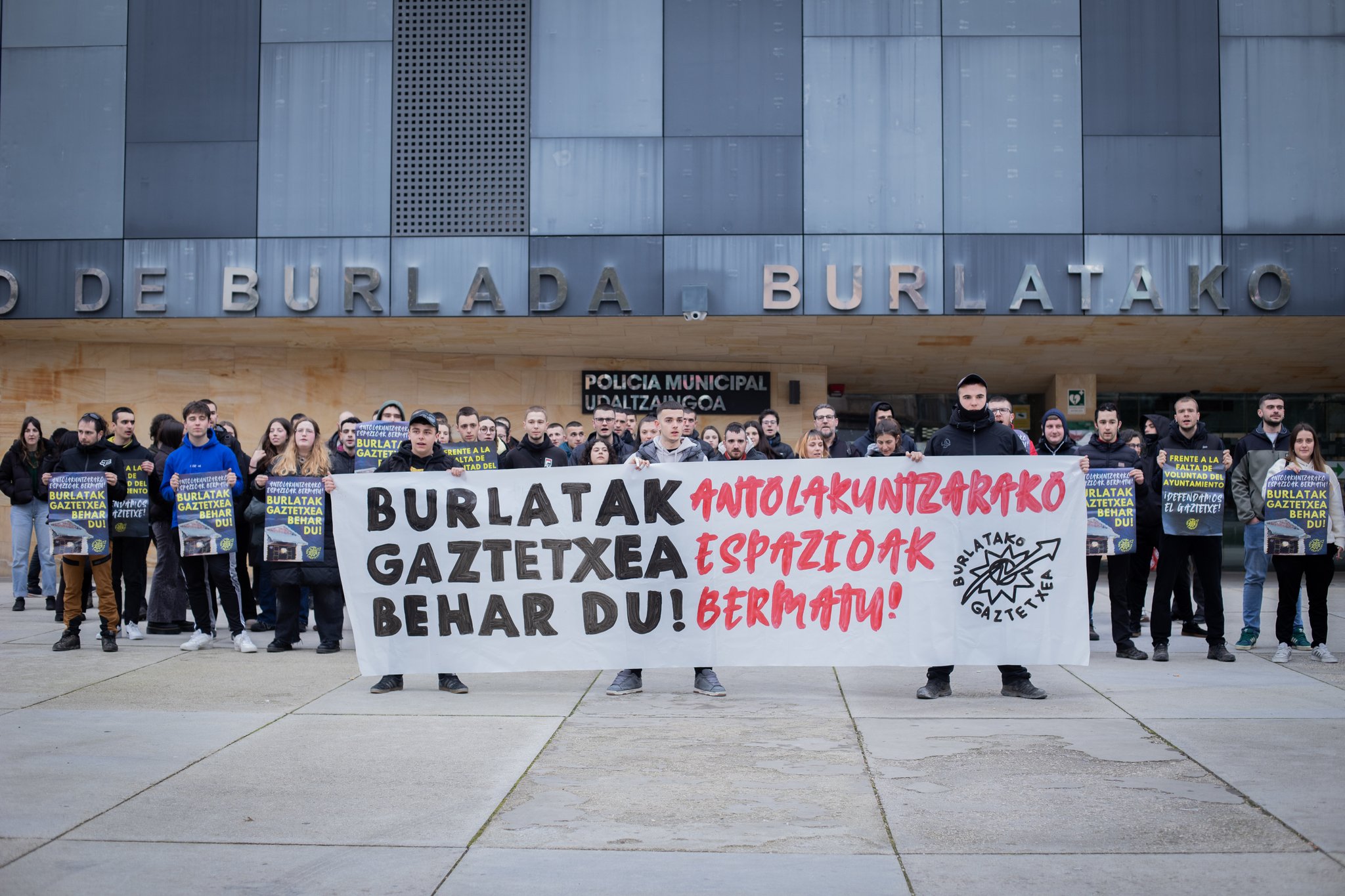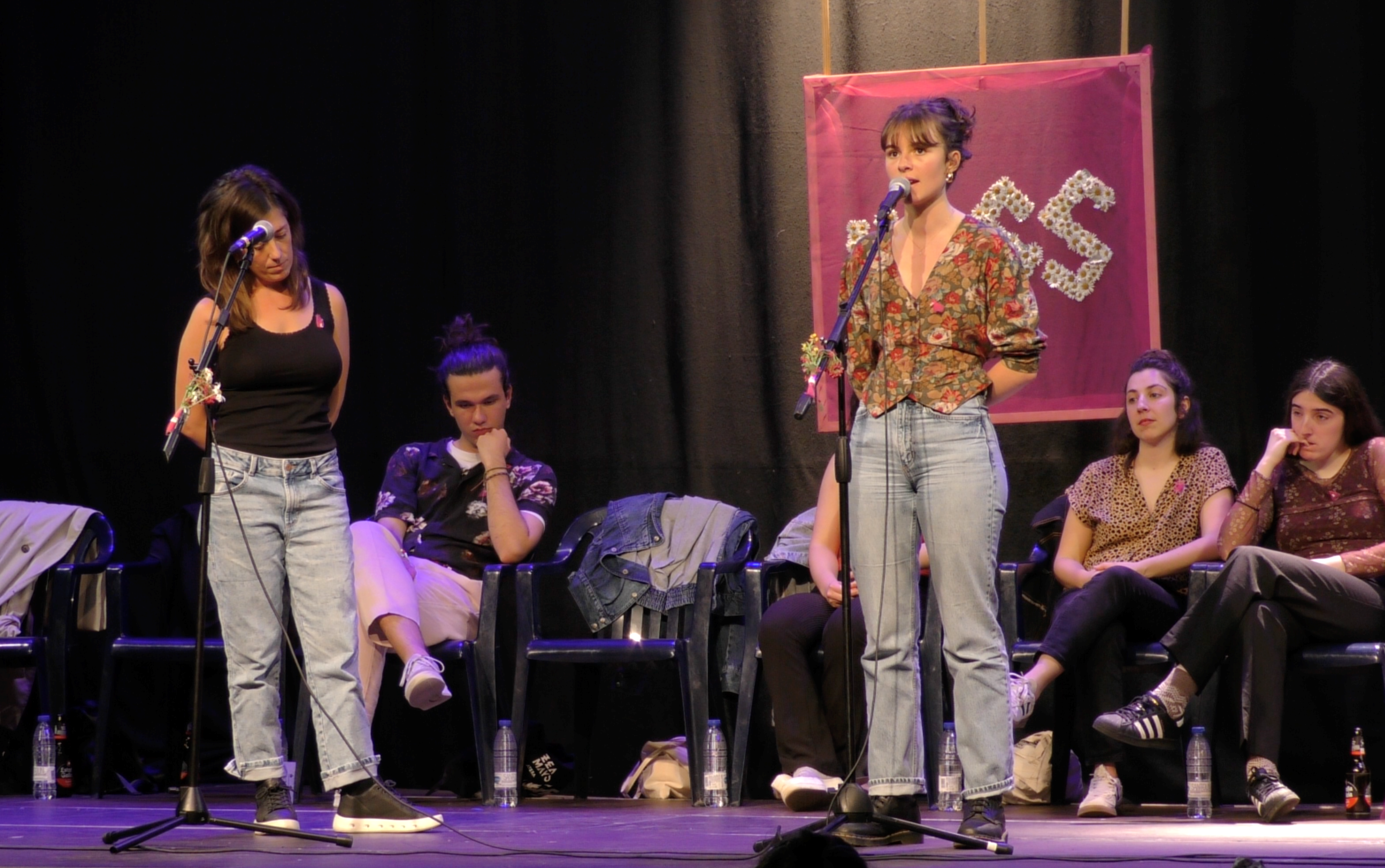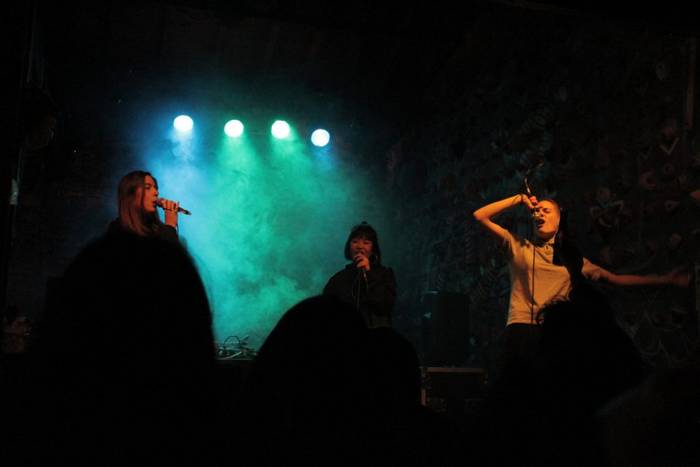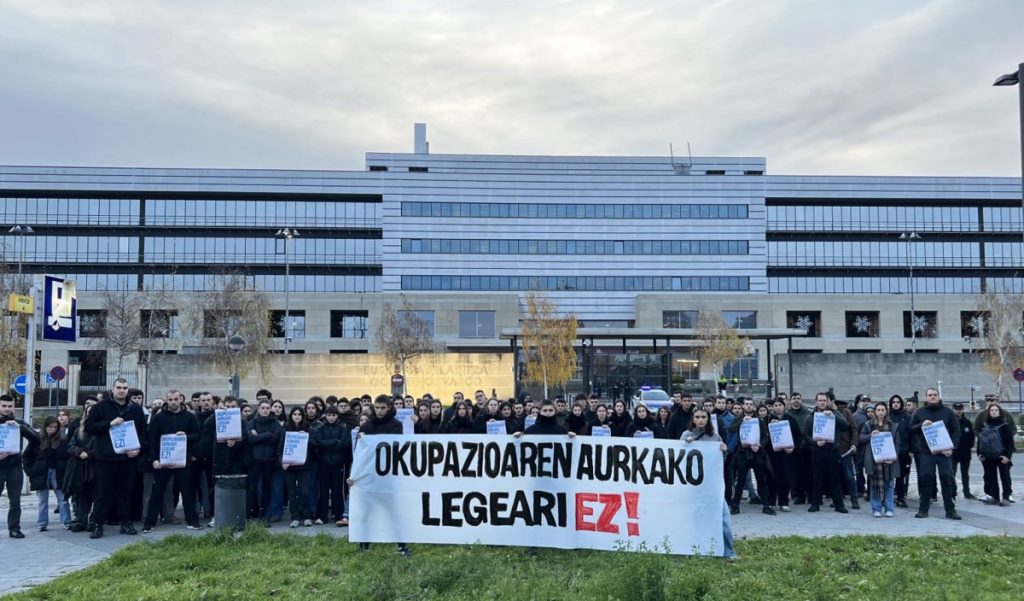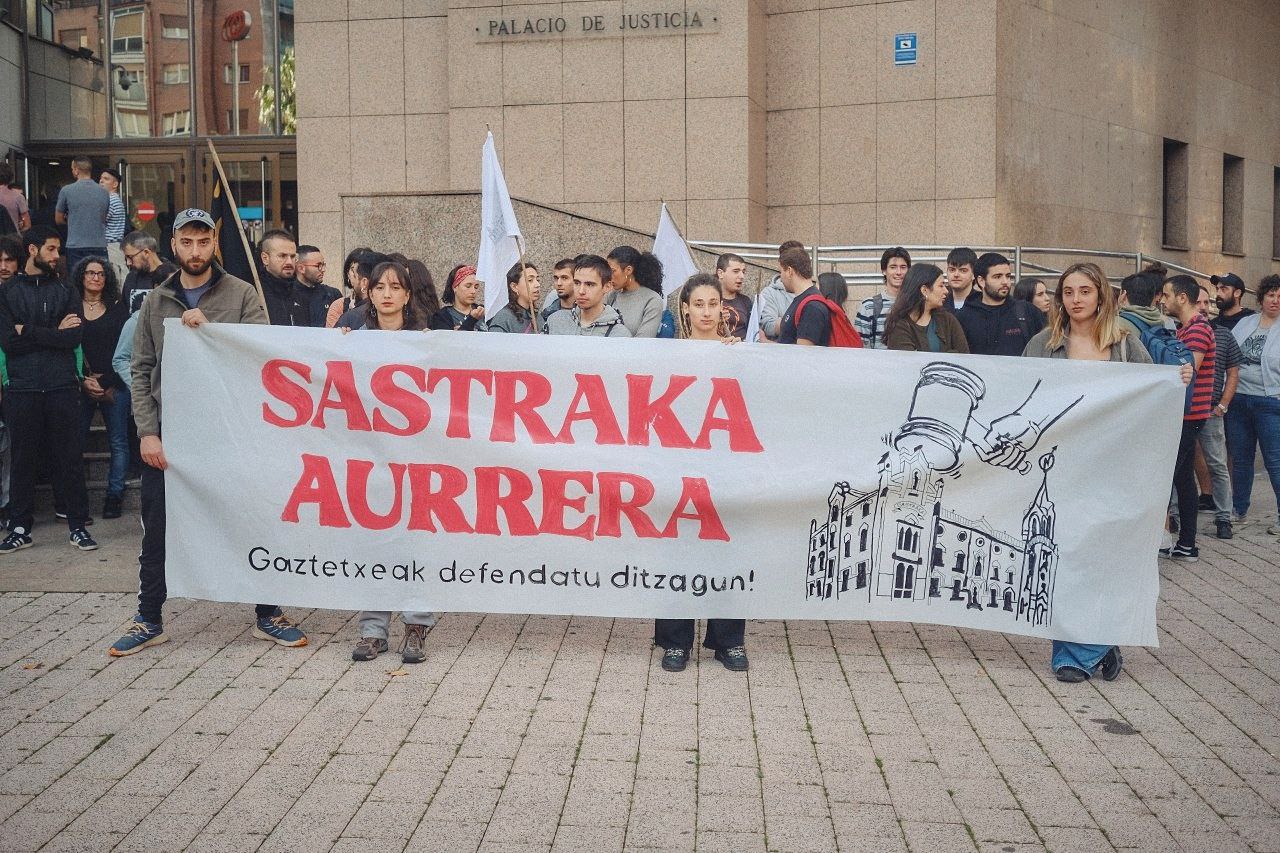They pretend to paralyze a Donostia hotel through occupation
- The debate on tourism is not new. Yes, in the Old Part of San Sebastian there are citizens who have launched a fight against a hotel: they have occupied a house in the building and have raised the resistance. “Is the Old Party a saturated area, even according to the City Hall, and secretly still want to make more hotels?” they say angry. At the press conference they asked the neighbours to join the fight, stressing that the City Council has not yet signed the last authorization.
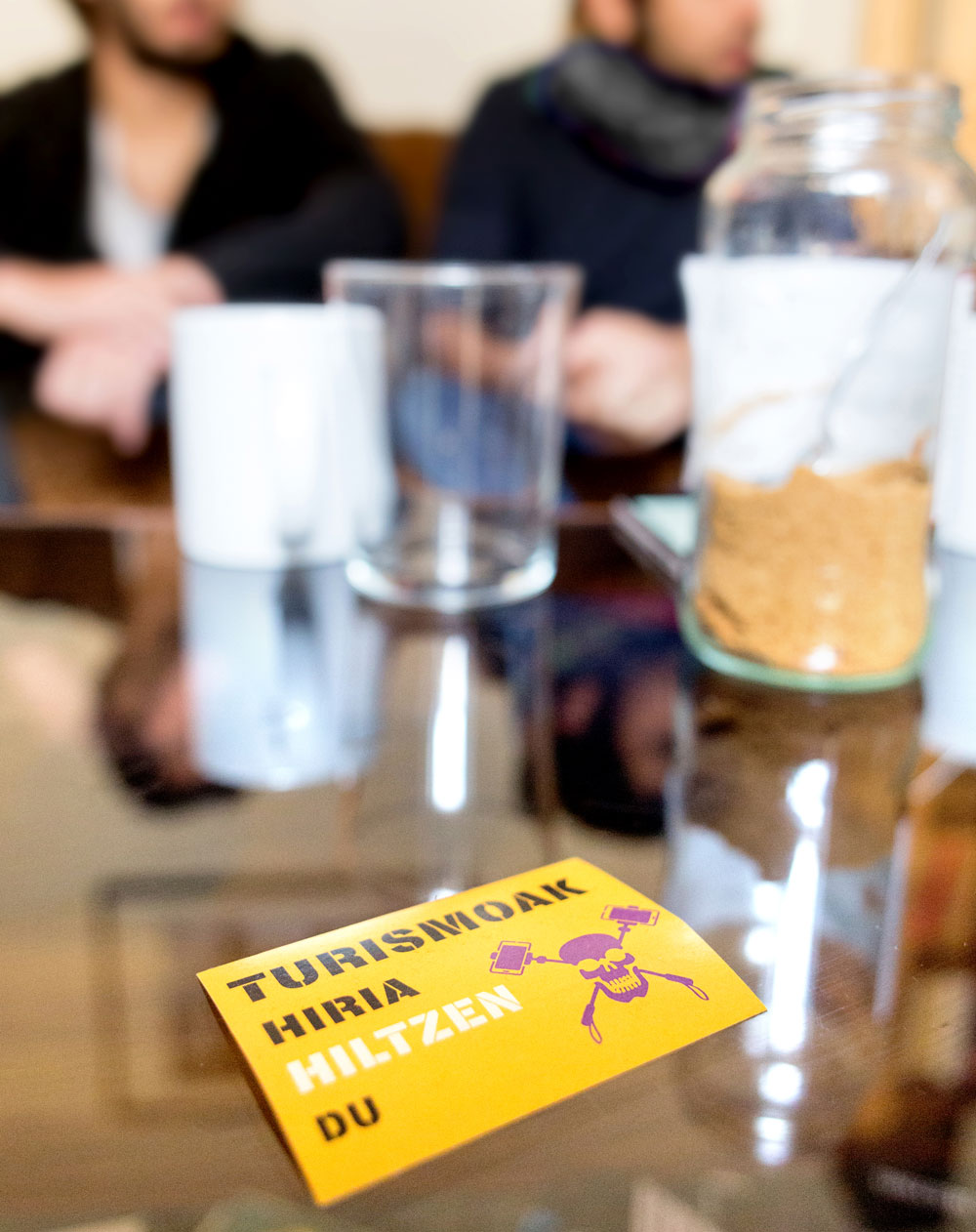
This is a new four-star hotel in the heart of the Old Town of Donostia-San Sebastián, this time: Looking at the church of Santa Maria, on the vertex of Calle Mayor, on August 31, in a six-storey building. Enter through the small door that remains between two bars. It's not hard to imagine once your families going up and down old, elegant wooden stairs. Nowadays, hardly anyone lives and on its first floors employees of other businesses of the company that manages the building sleep. ARGIA has gone to the house they have occupied on the fifth floor to fight the hotel project, as well as to talk with their colleagues, with the condition of preserving their anonymity.
Argi and Joseba have received us – they are false names – and they bring well prepared what they mean. “With our occupation and the resistance that can be expected, we want to highlight the violence that often lies behind tourism,” they say from the outset. They have explained to us that they have acted at a personal level on the basis approved in the assembly.
It was occupied during the second week of June. Some have been previously occupied. You have recalled that the house, 110 square meters, was very abandoned and that, despite the good windows, there was a lot of dust. It is estimated that it had been at least three years empty, but it is significant that in one room the 1998 calendar was found on the wall. Four people live there, with a larger network of protection. To decorate the white walls, you can find pictures in black frames throughout the house in black and white. Mostly iconic photos of demonstrations and mobilizations, as well as some posters. On the fifth floor, you can see from the windows the figure of the Sebastian Cemetery, attacked by the arrows on the facade of the church of Santa Maria. “Did you know that San Sebastian is a gay icon?” Joseba smiles.

“I believe that we have broken a stigma by occupying a home in the center that is right in the center, because if not, it seems that it was, it has to be something that is far away and in a very bad state; that stability and comfort are not for us,” Joseba started.
In order to build a six-storey hotel, they have stressed that for years a few people have been doing the whole block. “In compliance with laws or outside the law, families have been slowly pushed from their homes, so real estate mobbing has been a reality here.” The resident association has also denounced the impact it has had on the practices of bars in the area. In 2013, a fire was also declared in one of the bars in the suburban area, and the City Hall found that the two bars communicated with each other without permission.
“Members of popular movements.” That is how they are defined. “We are people who have a commitment to this neighborhood and to Donostia, we already had it before and now more. This is the same project, an opportunity to denounce that the neighborhood’s neighbors are being thrown out and making hotels for tourists.” The works have not begun. The City Council has not yet signed the last authorization, so they want to press.
Accumulating properties in few hands
The building is owned by the current film director, Blanca Zaragueta, and by the entrepreneur, Consuelo Zaragueta, daughters of Vicente Zaragueta. The latter was, among other things, the vice-president of El Diario Vasco, the president of the Aquarium and friend of the former king of Spain, one of the great fortunes of Gipuzkoa. The owners don't live there.

Despite being one of the sisters owned, the building is run by an entrepreneur named Asier Arriola Arriola, through a company called Nahikida S.L. Arriola has several businesses in Donostia-San Sebastián, all in the field of hospitality and tourism. “At the bottom of the building there are two bars: Atari and Sirimiri; a third, called Parranda, in Narrika Street; manages two pensions in the Casco Viejo; Basque Tours is its own travel agency; Gu discoteca; Janondo is the restaurant and Urban Youth Hostel is its company. That is what we know. The distribution of wealth is decreasing because the owners are diminishing and increasingly have more power,” they report.
“With tourism we are all told, but we don’t all win. Some earn a lot while the others survive, again the class struggle. And now he wants to make a new hotel, and in this building he will no longer be able to live the neighbors of the Casco Viejo, and he will drive prices to continue to rise,” says Argi seria.
Old Part of San Sebastian, saturated
If the tourist arrivals in San Sebastian and the protests against it have also attracted international attention, it is important to locate this possible hotel in the most saturated neighborhood. To locate the reader, Xabier Arberas, member of the association Parte Zaharrean Bizi, wrote two weeks ago in his article The case of the Old Part of Donostia or the art of looking away, after strongly criticizing the attitude of the institutions, provided some data on the situation they live.
“We live 6,000 people in the Old Part. More than 700 commercial premises and 210 hospitality establishments (one per 29 inhabitants) have been opened, three times more commerce and six times more hospitality establishments than the rest of the city's neighborhoods. 50 per cent of all premises are for tourism. 65% of hotel establishments are concentrated in 11 streets, 17 gastronomic societies and 280 tourist apartments (of which 84% are illegal), three hotels (one under construction) and 62 pensions. And over 1,600 beds for tourists.”
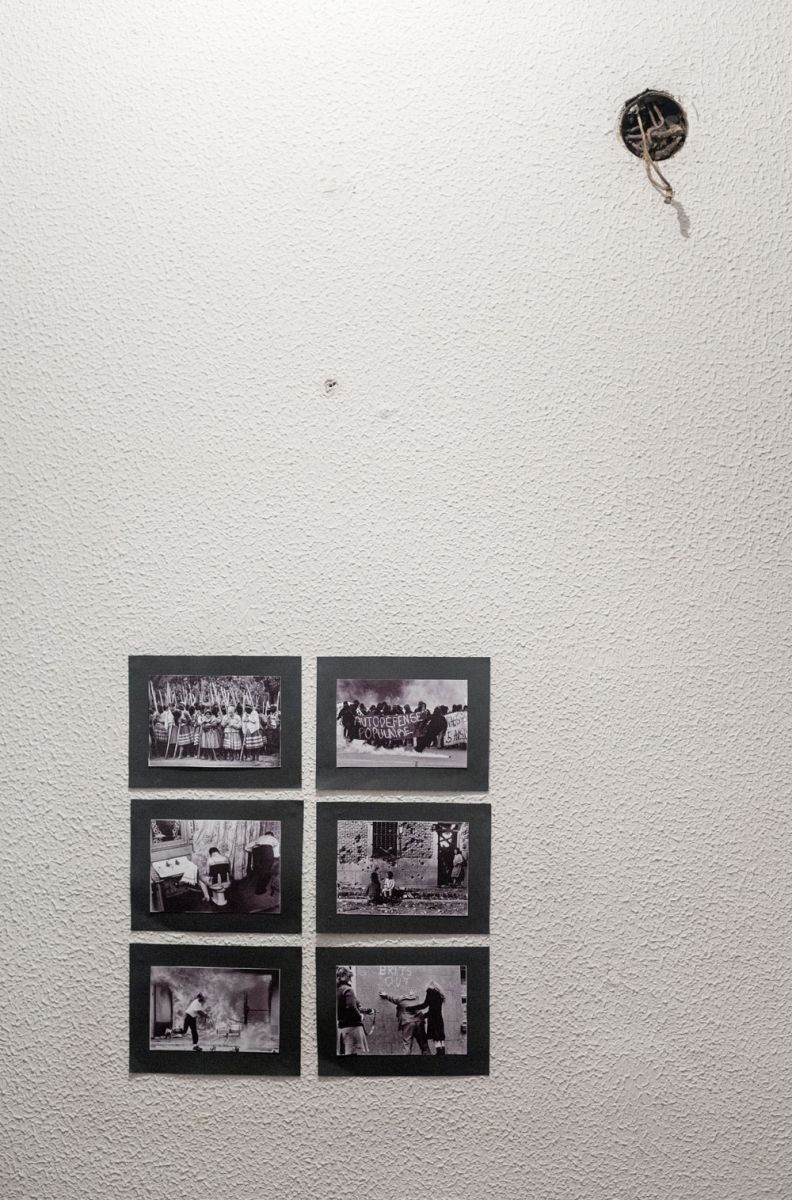
Despite the media dimension recently acquired, the neighborhood's neighbors have been sitting on the table for years. They denounce that in an increasingly tourist area they do not have a culture house or a sports club, including the lack of space of the ikastola Orixe, to name a few public services. There are no active public housing policies and many think that the situation of neighborhood identity, history, culture and, above all, Euskera is “dramatic”, as the writer explains. “In these two years, the City Hall has looked elsewhere, despite the fact that 240 illegal cases have been reported. Of these, more than 90% remain unanswered,” he says.
Many neighbours and neighbours are angry at the treatment given by the authorities and the media closest to the issue. Arberas ended her severe letter like this: “After two years, we can see that the Old Party is worse off. The City Hall has become a specialist looking the other way and has acquired all the skill in this art, it is clear, totally irresponsible.”
“Where do they take us?”
Argi and Joseba are also very critical of the situation. “I don’t know if we are aware of the direction the city is taking, of the transformation it has undergone and is suffering in the last ten years. Everything is changing.” In the debate that has erupted this summer, they consider that it has been “very mediatized and without much depth”. Although the City Hall of Donostia-San Sebastián has made new proposals, it is noted that it has continued to deepen its model. They want to deal with it and “undress” the positions on the tourism model.
“From one neighborhood on the periphery to another in the center, there are four years of different life expectancy, and among many other things, we believe that tourism increases class conflict,” says Joseba.
Argi defines tourism as a “domestic sphere” of capitalism, “where the city or the place of residence of citizenship is located, and where the life of citizenship is changed. This transformation is clearly detrimental to the neighbors”.
Joseba is still in the same line. “Cities, ways of life and people are consumed, everything is exteriorized, everything is typical, and everything is reduced: neighborhoods, cities, communities and the planet.”
.jpg)
People are called to participate in the social fabric of the neighborhood because in the Casco Viejo there are empty houses. “In the face of individualism, let us encourage the sharing of collective life and life with others,” says Argi, emphasizing also what they defend. “Okupar gives you the ability to help each other, and also hurts them,” says Joseba smiling on the way to end the interview.
They want to make it clear that they are not against those who have a bar in the neighbourhood or those who work in the precarious tourism sector. “We are against entrepreneurs who destroy neighborhoods and have many businesses in the sector. Not forgetting that tourism has a thousand faces. With our action we want to point out the hotel and the great entrepreneurs.”
They have a clear dichotomy: “Arriola or neighbors. They hotels, we community housing.”
We heard bells.
Pasa den asteko "kaleratze ilegala" salatu dute hainbat herritarrek, ostiral arratsaldean.
Joan den asteko kaleratze "ilegala" salatzeko, manifestaziora deitu dute ostiral arratsalderako.
Ustez, lokalaren jabetza eskuratu dutenek bidali dituzte sarrailagileak sarraila aldatzera; Ertzaintzak babestuta aritu dira hori egiten. Birundak epaiketa bat irabazi du duela gutxi.
Protestak 24 ordu bete dituenean, suhiltzaileak bertaratu dira udaletxera eta kateak moztu dizkiete bi gazteei. Bi kateatuek gaua bertan igarotzea "udaletxearen hautua" izan dela adierazi du Gazte Asanbladak, eta udalaren ordezkariek "ekintza deslegitimatzeko eta bi... [+]
EH Bildu agintean dagoen udalak gaztetxearen etorkizuna ziurtatzeko aterabide bat adosteari "uko" egin diola salatu du Burlatako Gazte Asanbladak. Beste hainbat gaztek udaletxe kanpoan kanpatu dute, eta goizean zehar bertara hurbiltzeko dei egin dute.
Iruñerrian bat egin dute hainbat Gazte Asanbladak, Burlatako Gaztetxearen alde. Etxarriren desalojoa gelditzera deitzeko, bestalde, manifestazio bat antolatu dute Bilbon hilaren 28rako.
Asteburu honetan hasiko da Gaztetxeak Bertsotan egitasmo berria, Itsasun, eta zazpi kanporaketa izango ditu Euskal Herriko ondorengo hauetan: Hernanin, Mutrikun, Altsasun, Bilboko 7katun eta Gasteizen. Iragartzeko dago oraindik finala. Sariketa berezia izango da: 24 gaztez... [+]
Festa egiteko musika eta kontzertu eskaintza ez ezik, erakusketak, hitzaldiak, zine eta antzerki ikuskizunak eta zientoka ekintza kultural antolatu dituzte eragile ugarik Martxoaren 8aren bueltarako. Artikulu honetan, bilduma moduan, zokorrak gisa miatuko ditugu Euskal Herriko... [+]









